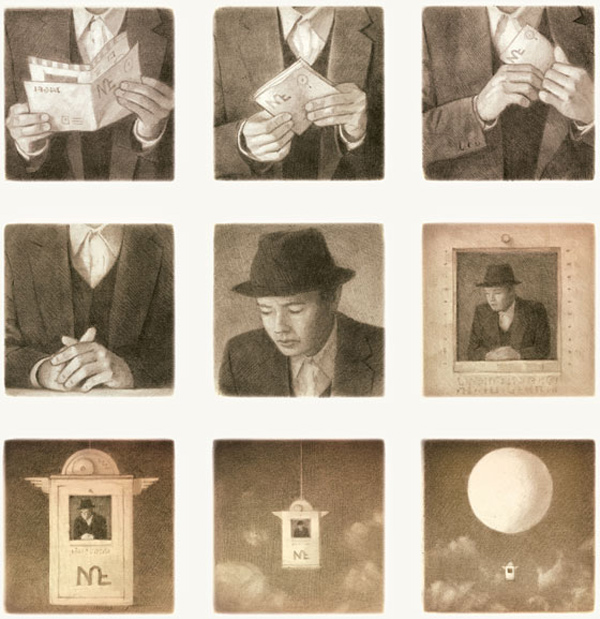What Took Place Before the Bottom of the 7th in Game 2 of the World Series
Last nighttime the St. Louis Cardinals beat the Boston Red Sox in game 2 of the World Series, and their triumph made Baby Marie-Antoinette less woeful than she was on Wednesday night when the Cardinals lost (which they’re not supposed to do).
As with Baby Marie-Antoinette, I think the St. Louis Cardinals should win the World Series, and I also would be fine if their commendable closer, Trevor Rosenthal, wanted to be my boyfriend.
But this post right here sort of tackles another topic.
Before the bottom of the 7th inning, the Boston Red Sox commemorated all of the people who were blown up in the Boston Marathon.
They came out onto the field, and James Taylor sang a song.
This instance illustrated a theme from one of my favorite books, Frames of War by Judith Butler.
In this book, Judith distinguishes between greivable lives, like the people on the Boston Red Sox’s field, and ungrievable lives, like the Muslim creatures who continue to be blown to bits.
Being a boy, I like violence. But I don’t like phoniness, and it seemed to me to be really phony for all of these Boston Red Sox people to portray themselves as empathetic and moral-loaded and whatever other terms they might throw out, when, really, they’re only empathetic and moral-loaded to those who subscribe to America’s depiction of a grievable life.
When I Looked At Your Cock My Imagination Died
When I Looked At Your Cock My Imagination Died is the title of one of the sections in Ariana Reines’s collection of verse Mercury.
One nighttime, while considering all the boys I had heart-crushing crushes on (like you-know-who and yes-him and obviously-that-one-who-cares-if-he-did-what-he-did) I read this very section of poems for what may just be the one millionth and first time.
The first poem of this section is a letter (maybe it’s one of those electronic letters that all those 20-somethings in Brooklyn send back and forth or maybe it’s the type of letter that wonderful Willa Cather sent her eloquent girlfriend Edith Lewis).
“ariana,” commences the correspondence, “all I can think is the sex. Practice with the butt plug. Wear it around tonight. I want them to double penetrate you.” The boy talks about transferring money into Ariana’s account. He also dispenses further directions:
I want the video to start with you on the phone talking to me on your knees with their cocks touching your face and you looking up into the camera as you talk to me and begin sucking their cocks. When you start fucking I want to be on the speaker phone and jerking off. I want to see everything as they go in and out of you together.
The boy is quite tyrannical, and every worthwhile heart beats boisterously for tyrants, as there’s truth in being controlled and possessed. As the French boy who said 9/11 was symbolic points out, Western culture (i.e America and their ho bags) is nearly omnipresent, and the places where Western culture hasn’t grown its gay garbage — choice Muslim and black countries — there’s not likely to be many Western culture subjects (unless your name is Nicholas D. Kristof). Those who flaunt freedom aren’t free. They are dependents to the unpleasant pragmatic tyranny of America and its ho bags . If America and its ho bags was, perchance, destroyed, they’d be too. Jason Collins, to cite one dependent, wouldn’t be so if the hegemonic culture on earth gave zero craps about an average GLADD boy who can’t play basketball.
So, when Ariana surrenders her agency to this boy, she abandons phoniness as well. Stating that agency is an actuality is similar to stating that chocolate chip cookie dough is downright disgusting — it’s utterly untrue! A long time ago the Marxist boy Louis Althusser’s “moment of interpellation” brought out that bestowing identity is not the act of a single subject. More than one someone is required to be recognized as an entity. In Bodies That Matter, famous girl-boy Judith Butler put Louis’s interpellation in action. A policeman summons a citizen with a “Hey you!” The policeman heeds the “you.” He recognizes that the “you” is entwined with his world. The “you” may reply, but the “you’s” reply is due to the policeman’s summons. If the policeman didn’t say “Hey you!” then the citizen wouldn’t be impelled to speak to him — the citizen wouldn’t be able to utilize his voice. A creature can neither create an identity by his lonesome nor speak for himself on his own. Invariably, he must be recognized by someone not himself, even if that someone is a cuddly, invisible teddy bear.
All of that was completely necessary to convey so that I could confirm that Ariana is biding bon voyage to an idea of no value whatsoever. To sum up, agency is a tricky, corrupt instrument of American hegemony; and America, as Jewish novelist John Updike noted in the 60s, has lost the blessing of God. Ariana, though, has not. The poem proceeding the letter reads: “I want the gold. / Shimmer shimmer shimmer shimmer shimmer.” Since Ariana got to the truth, she shall get her gold too. Truth, says the sensational John Milton, is the foundation of Christianity. In the postlapsiarian planet, truth has been slashed into infinite tiny piece. The commendable Christian’s duty is to discover as many of these pieces as possible. All of this is why Ezekiel’s vision of New Jerusalem is “pure gold like clear glass.” God is there! Where God is, truth is; where truth is, gold (something of supreme value) is. By spotlighting the truth of subjection, Ariana aligns herself with God, truth, and gold.
Also in this section is another prose poem that begins “when i get on your cock like a bag my face is scarred”. Punctuation, paragraph breaks, capital letters — all of these components have been cast aside. Clauses collide into one another, like “i gaze up at the fat man to be reverential and durty none of us has hair i think i look confused so i wet my fat tongue i think exciting thoughts fake nails in clits fake nails in clits fake nails in clits.” First person pronouns are in the same caste as nouns, adjectives, and adverbs. The “i” isn’t capitalized: it’s been toppled (I believe capital letters aren’t pretty in the first place). An upheaval has happened and the words arrive at whiplash speed, like a flood, a plague — a circumstance from the best book ever, The Bible. Both are extreme, and that, according to me, is how things should be.
A Summary of Our Academic Conference, The Unstable and [de] Mutable Boundaries Between Meteorological Atrocities and Human Political Economies with Bodies-as-Subjects Coming Into Being As They Are
The approach of Hurricane Sandy has already altered the entire course of me and my friend’s lives. On Sunday, I was supposed to shop for vintage sweaters and attend a poetry brothel. These would’ve probably been some wonderful moments. But Hurricane Sandy put a stop to all my hypothetically marvelous adventures.
Instead my friends and I were bunkered in our apartment in Alphabet City.
What were we to do?
If we were VIDA, then we could count the number of times a masculine pronoun appeared in this week’s NYT Book Review and then compare it to the number of times that a feminine pronoun appeared in this week’s NYT Book Review and then get really angry about it and channel all of our anger into a neat and tidy chart.
If we were overly anxious New York Jews then we could close down the subway system at 7 PM, hold press conferences using folksy idioms like “up and about,” and dress like men who spend a great deal of time in well-off subdivisions of Connecticut.
Also, if we were male homosexuals, we could have sex nonstop sans condoms.
But my friends and I aren’t any of those things. So, in lieu of that, we chose to hold an academic conference that had an awful lot of relevance to our current predicament. Our conference, which was held last night (28 Oct. 2012), was called The Unstable and [de] Mutable Boundaries Between Meteorological Atrocities and Human Political Economies with Bodies-as-Subjects Coming Into Being As They Are. This conference has already been compared to some of the most vivid and vivacious academic conferences ever held.
Here’s a summary:
October 29th, 2012 / 12:27 pm
The Poetics of Non-Arrival: KAFKA
“Am I a circus rider on two horses? Alas, I am no rider, but lie prostrate on the ground.”
–Franz Kafka in a letter to Felice Bauer, 1916
He was talking about the Jewish horse and the German horse
(But there is also the Czech horse.)
What horse did Kafka ride?
Where does Kafka belong?
Who owns Kafka? *
These sentences kill me.
Imagine: prostrate on the ground.
That’s what an exilic existence is like
Prostrate on the ground.
Living in the place that is no place
Riding the no horse
Going nowhere, only not-here
With no language
Never quite comfortable in any language. **
When the narrator in the story “My Destination” is asked where he is going
He says,
“I don’t know.”
“Away from here, away from here.”
“Always away from here, only by doing so can I reach my destination.”
Always away, never arriving. ***
Butler: “…the monstrous and infinite distance between departure and arrival….”
Kafka: “For it is, fortunately, a truly immense journey.”
.
.
.
NOTES
* [I love this essay about Kafka by Judith Butler.]
** [Butler: “We find in Kafka’s correspondence with his lover Felice Bauer, who was from Berlin, that she is constantly correcting his German, suggesting that he is not fully at home in this second language. And his later lover, Milena Jesenská, who was also the translator of his works into Czech, is constantly teaching him Czech phrases he neither knows how to spell nor to pronounce, suggesting that Czech, too, is also something of a second language. In 1911, he is going to the Yiddish theatre and understanding what is said, but Yiddish is not a language he encounters very often in his family or his daily life; it remains an import from the east that is compelling and strange. So is there a first language here?”]
*** [Kafka: “Written kisses don’t reach their destination, rather they are drunk on the way by the ghosts.”]





